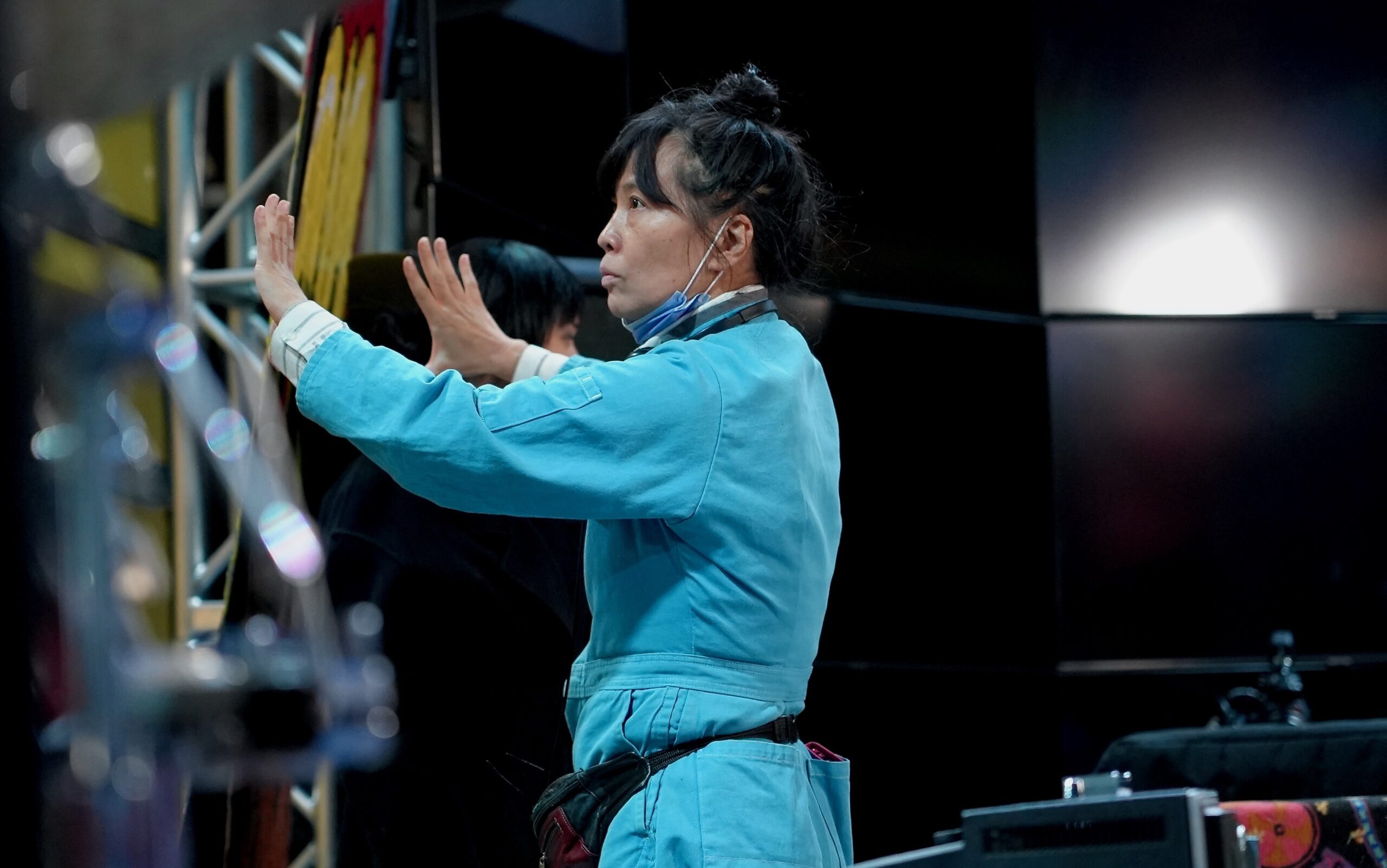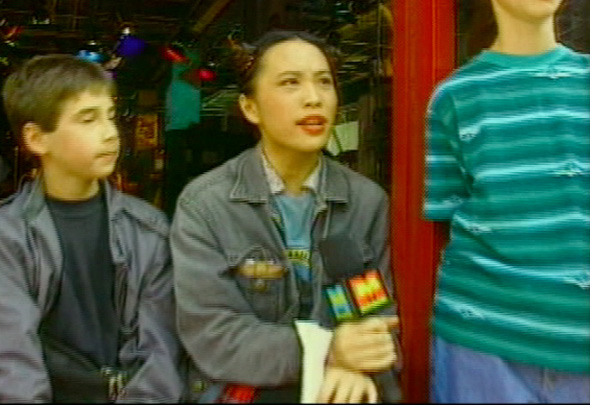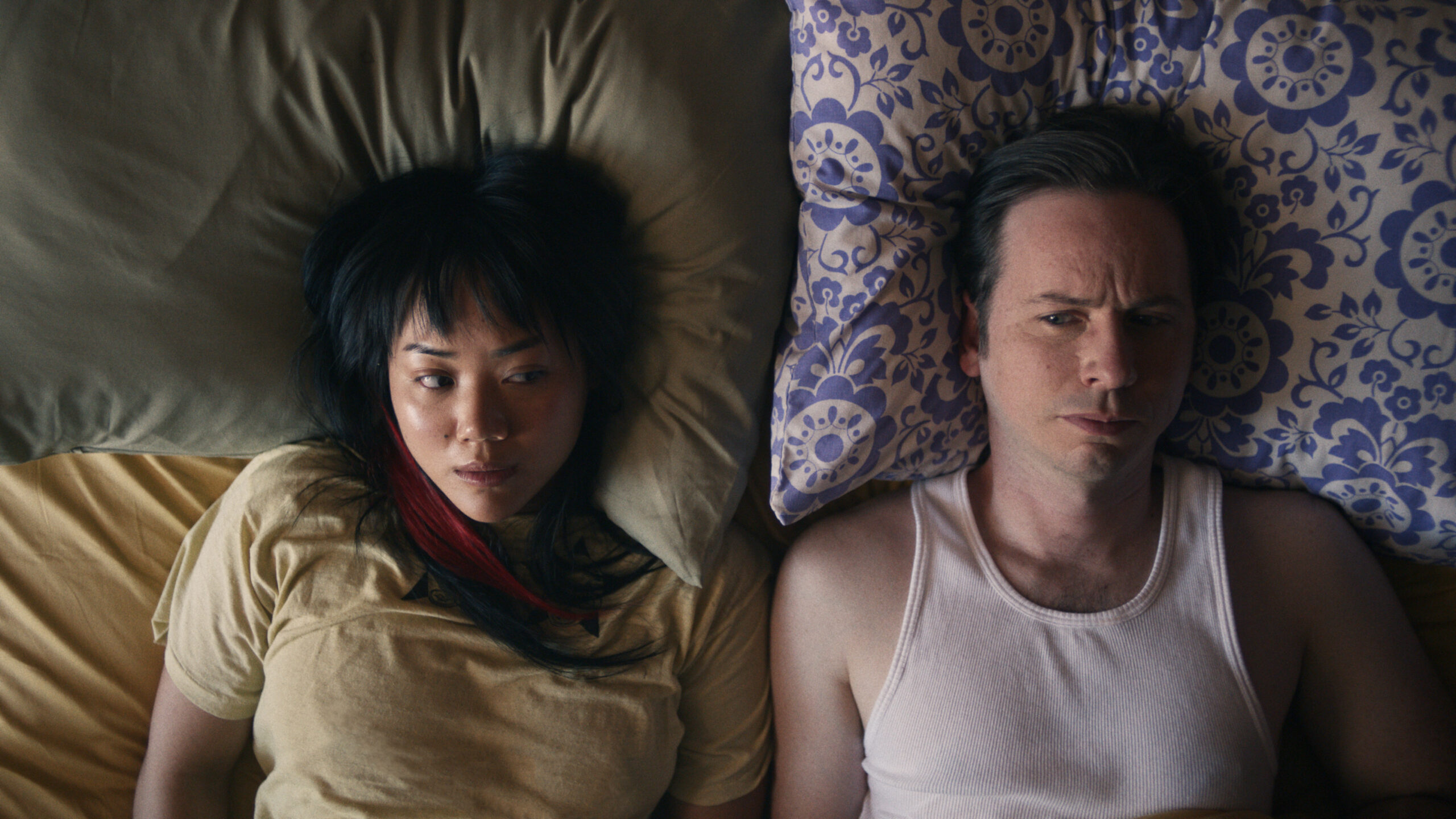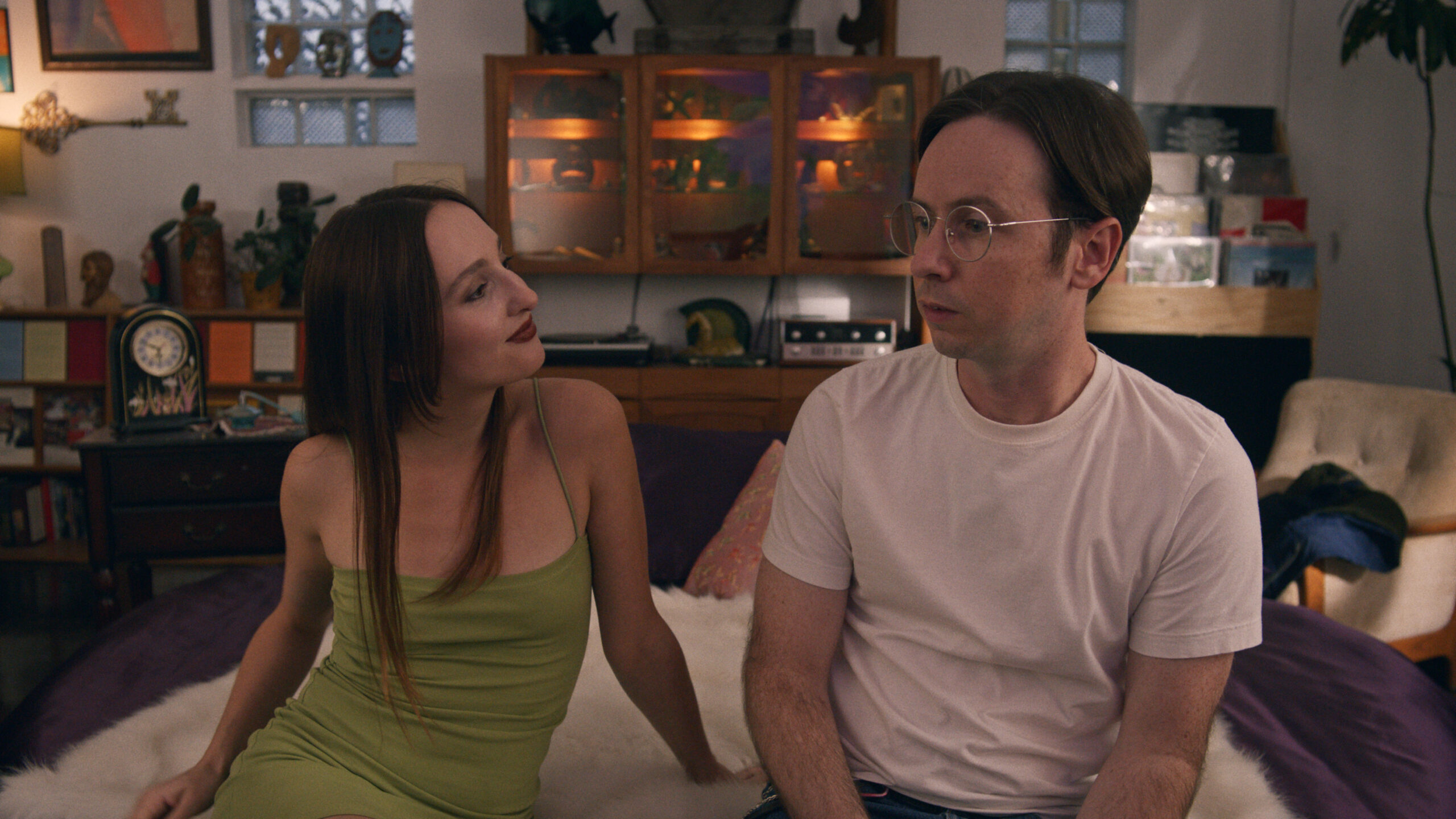When Sook-Yin Lee was 15 years old, she ran away from home.
Growing up in the suburbs outside of North Vancouver, Lee was the daughter of immigrant parents from China and Hong Kong. “I come from a really Chinese family and art was a big part of my life as a kid,” Lee says. But art wasn’t seen as a viable career path. “I had to be a straight A student—if anything that fell beneath an A plus, there’d be hell to pay,” she says.
When she left home, all Lee wanted to do was be an artist. She enrolled herself in a new high school, signed up for all the arts classes she could and started throwing herself into artforms of all kinds. Lee says that she would habitually enter herself into competitions, leading her to her first professional opportunities.

One of these competition entries (for a short film contest run by the National Film Board), consisted of Lee dressing up in a 10-foot egg noodle costume and walking the streets of Vancouver. The resulting film, Escapades of One Particular Mr. Noodle, told the story of a Chinese Canadian girl attempting to fit in. The girl gets a job promoting a pasta restaurant dressed up as a noodle and eventually turns into said noodle. At one point, she gets beat up on Granville Street (though she thankfully doesn’t get hurt, thanks to the noodle costume’s padding).
“It was an analogy for being Chinese Canadian,” explains Lee. “I didn’t fit into Hong Kong Chinese or China Chinese, and I didn’t fit into white culture. I really did feel like that egg noodle in society: a first generation Chinese Canadian, [confused] by the world as a young person.”
At the time, Lee met and joined a community of other artists in Vancouver’s Chinatown, where she not only produced her earliest works (Mr. Noodle among them), but also learned about what being an artist means for her. “It was a cross-pollination of artists, poets, dancers—very political people,” she recalls. “I grew up in Chinatown and I was brought up by a queer community. We didn’t have a lot of money, but we pooled our resources and took care of one another.”
That ethos of community care has been the guiding principle of Lee’s career. Even when she became a MuchMusic VJ and had her own show on CBC radio, Lee maintained that ethos. “I took that sensibility of community, reflecting community and expressing myself and my curiosity,” she says of her time at MuchMusic.

Lee’s show on MuchMusic, The Wedge, showcased alternative music and highlighted artists who were otherwise left out of the mainstream conversation. When she took over pop culture radio show “Definitely Not The Opera” at the CBC, Lee transformed the show from an entertainment-focus into a platform for folks to tell their own personal stories. For Lee, broadcasting, like the rest of her work, was about “giving the stage to other people that otherwise have no access to the media.”
Her latest movie, Paying For It, which premiered at the 2024 Toronto International Film Festival, is a culmination of all that she’s learned and done throughout her career. Paying For It is adapted from Chester Brown’s autobiographical graphic novel about his break up from Lee (yes, the very same Lee adapting the book), his journey as a john in Toronto and the sex workers he gets to know throughout the years.

Naturally, there are differences between the graphic novel and the film, namely, perspective. For Lee, who struggled with translating the episodic nature of the graphic novel, adding more bits and pieces from her own life as she lived parallel to Brown helped unlock the film. Played by Emily Lê, Sonny (Lee’s filmic alter-ego) goes through her own journey, learning about relationships, intimacy, love and sex—parallel to Chester’s own journey.
“I was a character in the book, but Chester was pretty skimpy on the details of me and our life together,” Lee says. “I wanted to expand the canvas of his graphic novel and refocus the story so that it was about a couple dealing with what was happening, how the relationship is transforming and how they really dealt differently in their search for love and connection and sex.”
To create the film, Lee leaned on her community in Toronto’s Kensington Market. She worked closely with her friends for various roles on set: non-actors she knew from around the neighbourhood played small roles, creators she’d followed on Instagram and admired from afar contributed to the project, Lee’s musician partner Dylan Gamble contributed to the score. Lee also tapped Andrea Werhun, the author of Modern Whore, a memoir about being a sex worker, to play one of the sex workers Chester frequents and develops a relationship with. She even shot in her real-life home in the Market, which she shared with Brown when they were together and for years after their break up.

The resulting film is a testament to the community work Lee has done throughout her career. Aside from tapping her network of artists in Toronto, Paying For It explores what it means to be in relation to one another: whether that’s a traditional girlfriend/boyfriend relationship, one between a john and a sex worker, one between friends, or one between an unorthodox found family like Lee and Chester living together long after their break-up.
For Lee, including these relations wasn’t just about filling in the sketch of her and Brown’s life as depicted by his graphic novel, the whole point of Paying For It is how we take care of each other. And, in a non-didactic way, both Lee and Brown’s Paying For It shows that the best way to be in community with one another is to fight for each other’s rights: When Brown’s book was first published in 2011, it illustrated why sex work needed to be decriminalized by demonstrating exactly how vulnerable consentual sex workers are without any legal protections.
“I really loved Chester’s graphic novel when it came out, it was a bold and important work and spoke to me about not only sex worker rights, but also had parallels to queer liberation rights, POC rights, women’s rights, labour rights, human rights, those wishes for a fair and just society where we care for one another,” says Lee. “Many of the themes that were in my work as well.”
Paying For It had its world premiere at the Toronto International Film Festival and will be released worldwide by Loco Films.
Like this post? Follow The RepresentASIAN Project on Instagram, TikTok and YouTube to keep updated on the latest content.











